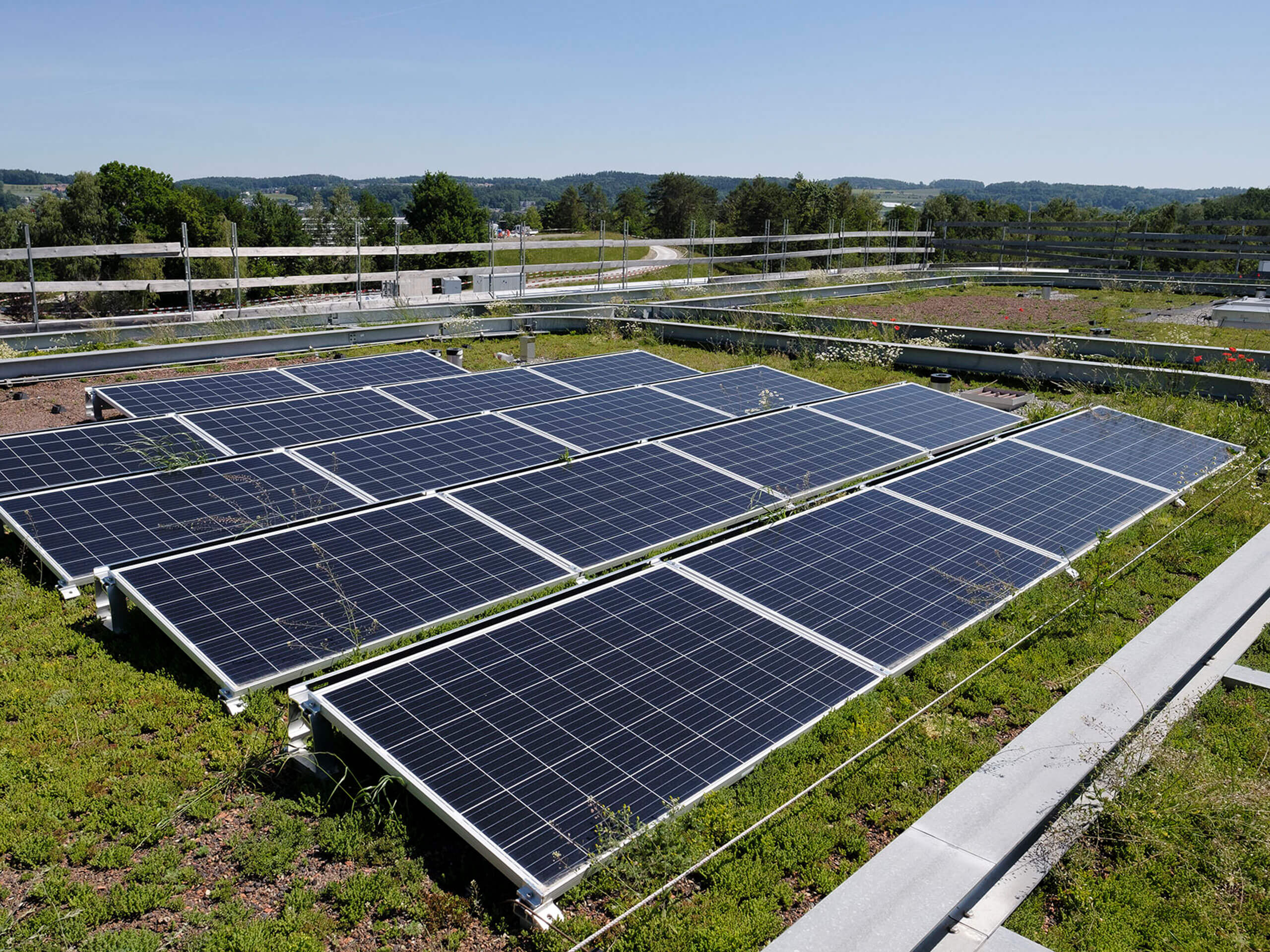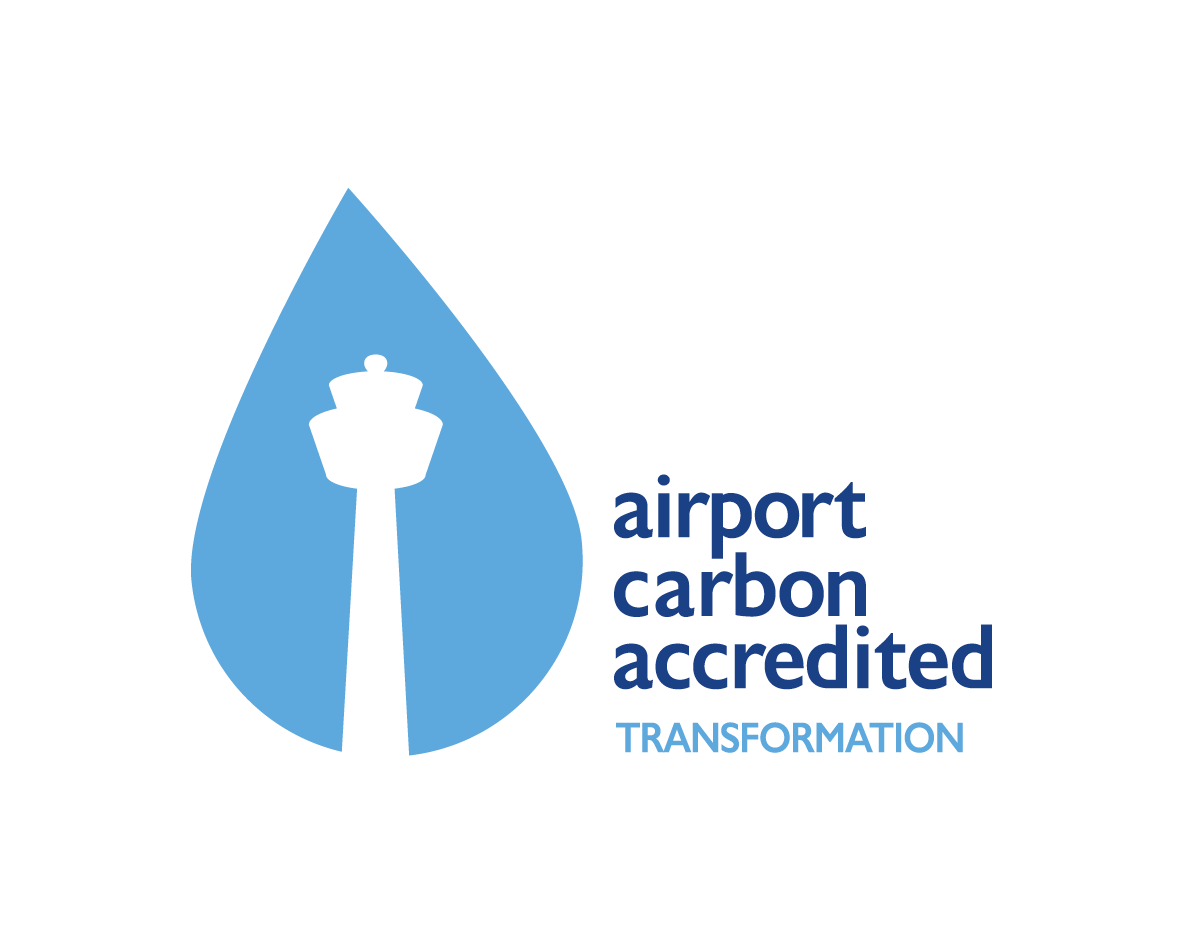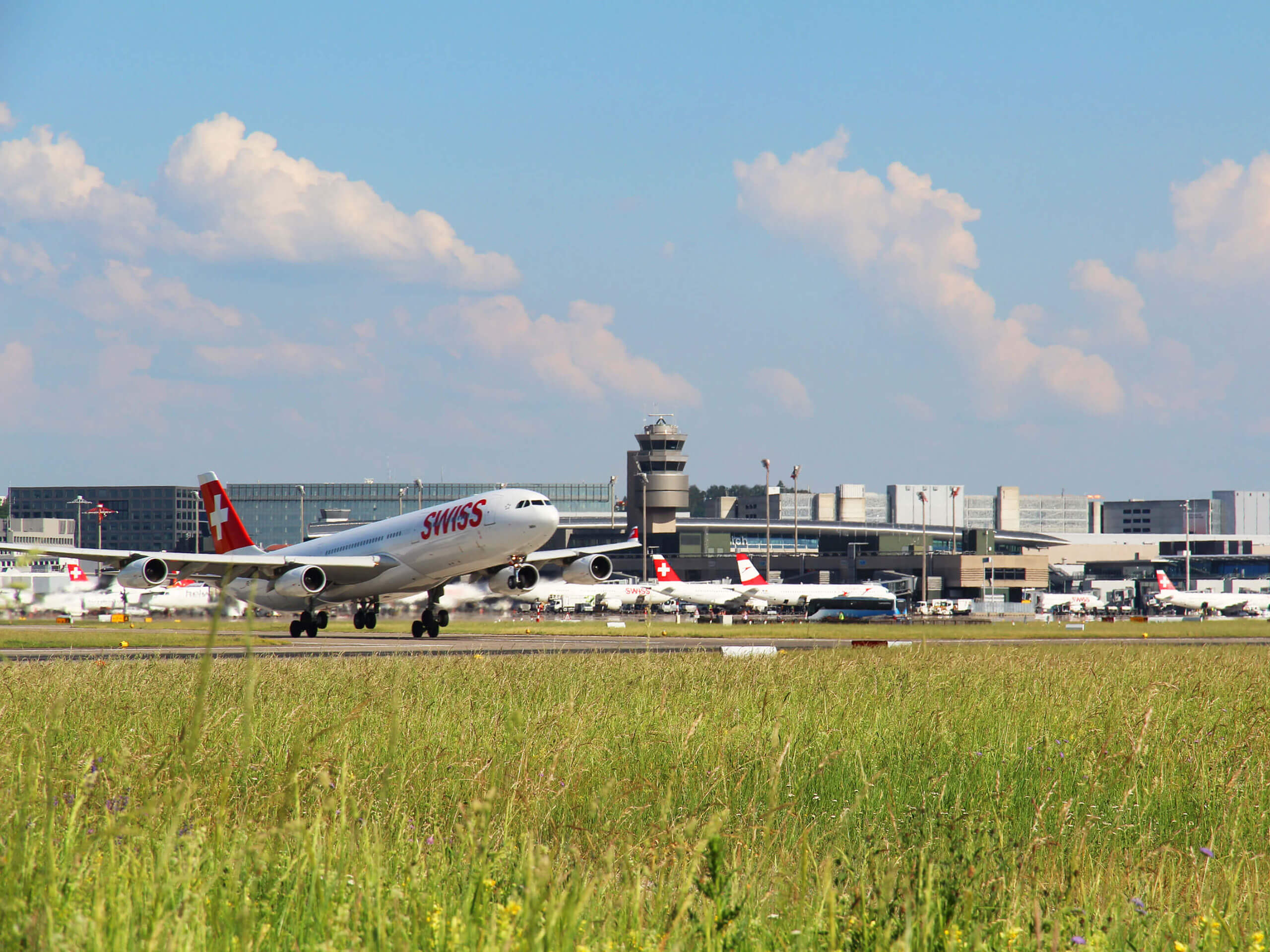Zurich Airport Ltd. CO2 emissions are to be reduced to net zero by 2040.

Climate protection –to net zero by 2040
Further reducing emissions
To play its part in cutting global greenhouse gas emissions, Zurich Airport Ltd. wishes to reduce its greenhouse gas emissions to net zero by 2040. To this end, it is committed to a reduction path, which involves reducing energy consumption, increasing efficiency, and moving away from fossil fuels.
Zurich Airport Ltd. has been proactively tackling the issue of climate protection since the 1990s, and its successes in the areas of climate and environmental protection at Zurich Airport have placed it in global demand as an expert on the matter. Since 1991, the company has halved its direct CO2 emissions, which were 50,000 tonnes at that time – and it continues to reduce them further.
How we protect the climate
In line with its function as an infrastructure operator, Zurich Airport Ltd. sees the greatest potential for reducing CO2 emissions in buildings and their energy consumption.
To reduce energy consumption, Zurich Airport Ltd. is focusing on building renovations and the related thermal insulation, as has been implemented in Terminal 2 for example. Furthermore, high energy standards have been and continue to be implemented in new-builds – such as the Circle.
Important partnerships
«Exemplary Energy and Climate» initiative
Zurich Airport Ltd. is part of the "Exemplary Energy and Climate" initiative. The initiative brings together 20 participants who serve as an example of how the Federal Government's "Energy Strategy 2050" can be implemented.
Partnership with «Synhelion»
In 2020, Zurich Airport Ltd. entered into a cooperation with high-tech company Synhelion SA, which is conducting research into producing almost CO2-neutral synthetic fuel from air and sunlight on a large scale. The agreement stipulates that Zurich Airport Ltd. will likely purchase the fuel at cost and use it for its vehicles and machinery.
Charta for Circular Construction
In 2024, Zurich Airport Ltd. joined a network of major private and public-sector developers that aims to actively promote the transformation of the construction industry into a functioning circular economy. The shared ambition is to reduce the use of non-renewable primary raw materials to 50 percent of the total mass by 2030, to record and greatly reduce the emission of gray greenhouse gas emissions, and to measure and greatly improve the circularity of renovations and new buildings.
Airport Carbon Accreditation

The European airport association "ACI Europe" recognised early on that reducing greenhouse gases is of great importance for the industry. As such, it launched the "Airport Carbon Accreditation" (ACA) programme in 2009. ACA is an accreditation system that communicates and evaluates an airport's reduction efforts.
Zurich Airport Ltd. has been participating in the ACA for over ten years and is accredited at level four. This means that Zurich Airport Ltd. has set a net-zero reduction target, can demonstrate a corresponding reduction path and provides evidence that it is also actively driving its airport partners to reduce emissions.
Climate impact of air traffic
Global air traffic is responsible for around 2-3% of global anthropogenic greenhouse gas emissions (IEA, 2018). In a national context, the proportion of global air traffic departing from Switzerland amounts to 11% of all Swiss greenhouse gas emissions (SCNAT, 2021). Carbon dioxide is the only greenhouse gas emitted directly by aircraft, which is also listed in the Kyoto Protocol, which is crucial for climate protection. If you include other climate-relevant processes in the atmosphere, such as cloud formation or the emission of nitrogen oxides, this results in air traffic contributing around 5% towards global radiative forcing.
Do you have any questions?
The Environment Team will be happy to help you.



